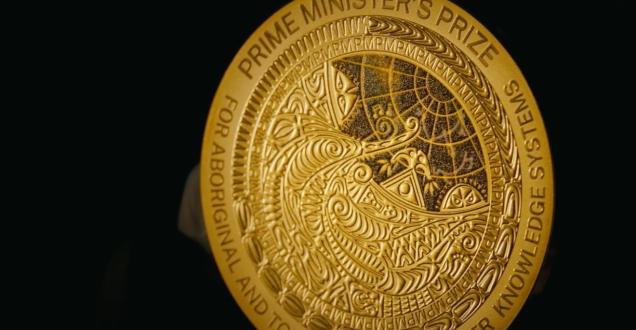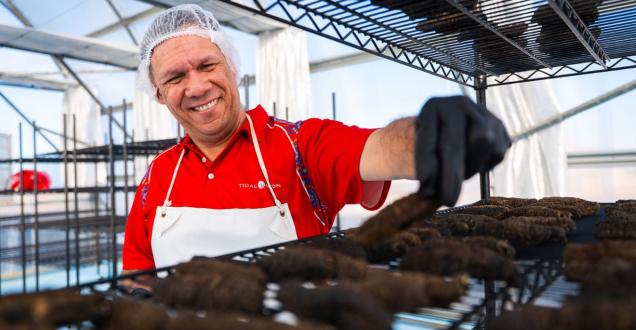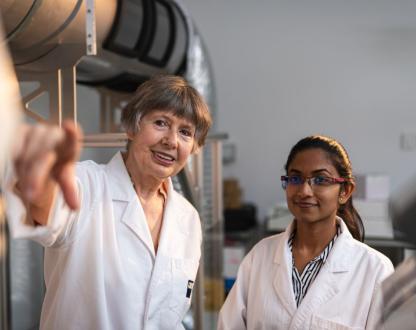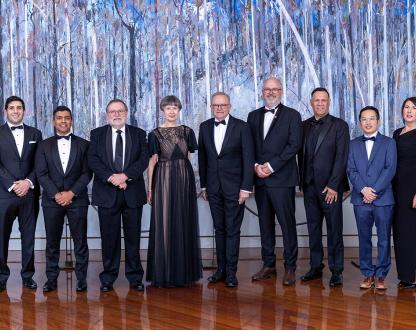The Prime Minister’s Prizes for Science are Australia’s most prestigious and highly regarded science awards.
The prizes acknowledge:
- scientists and innovators across diverse disciplines and career stages
- contributions of Aboriginal and Torres Strait Islander knowledge systems to science, our nation and humanity
- primary and secondary school teachers who inspire students to engage in science, technology, engineering and mathematics.
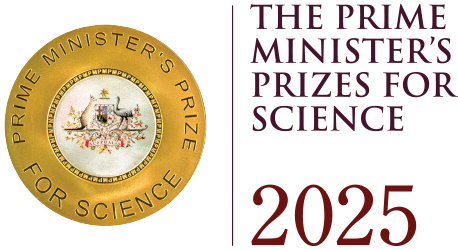
Key dates
-
2026 nominations
Prize guidelines available 8 October, nominations open 22 October and close 18 December 2025.
-
2026 prize recipients
Recipients announced in late 2026.
Meet the recipients
Latest news
Prize categories
There are 8 prize categories.
Prime Minister’s Prize for Science
For a significant advancement of knowledge through science. This prize can be awarded to an individual or a team of up to 4 individuals to recognise a collaborative effort. Awards $250,000.
Prime Minister’s Prize for Innovation
For the innovative translation of scientific knowledge into a commercially available product, service or process that has demonstrated substantial economic, social and where relevant environmental benefits. This prize can be awarded to an individual or a team of up to 4 individuals to recognise a collaborative effort. Awards $250,000.
Frank Fenner Prize for Life Scientist of the Year
For an exceptional achievement in life science that benefits, or has the potential to benefit, human welfare or society. Recognises achievements within 10 years (full-time or full-time equivalent) of completing relevant studies. Awards $50,000.
Malcolm McIntosh Prize for Physical Scientist of the Year
For an exceptional achievement in physical science that benefits, or has the potential to benefit, human welfare or society. Recognises achievements within 10 years (full-time or full-time equivalent) of completing relevant studies. Awards $50,000.
Prize for New Innovators
For an early achievement towards commercialising or translating scientific research with economic, social, and where relevant, environmental benefits. Recognises achievements within 10 years (full-time or full-time equivalent) of completing relevant studies. Awards $50,000.
Prime Minister’s Prize for Aboriginal and Torres Strait Islander Knowledge Systems
For an Aboriginal and/or Torres Strait Islander-led project that benefits Australian Indigenous peoples, communities or place and contributes to solving a significant challenge through the practice and preservation of Aboriginal and Torres Strait Islander knowledge systems. This prize can be awarded to an Aboriginal and/or Torres Strait Islander individual, a team or representatives of a community group. Awards $250,000.
Prime Minister’s Prize for Excellence in Science Teaching in Primary Schools
For excellence in primary school teaching in any area of science, technology, engineering or mathematics (STEM). The area must be part of the teacher’s state or territory science, technology, engineering or mathematics syllabus. Awards $250,000.
Prime Minister’s Prize for Excellence in Science Teaching in Secondary Schools
Excellence in secondary school teaching in any area of science, technology, engineering or mathematics (STEM). The area must be a part of the teacher’s state or territory science, technology, engineering or mathematics syllabus. Awards $250,000.

